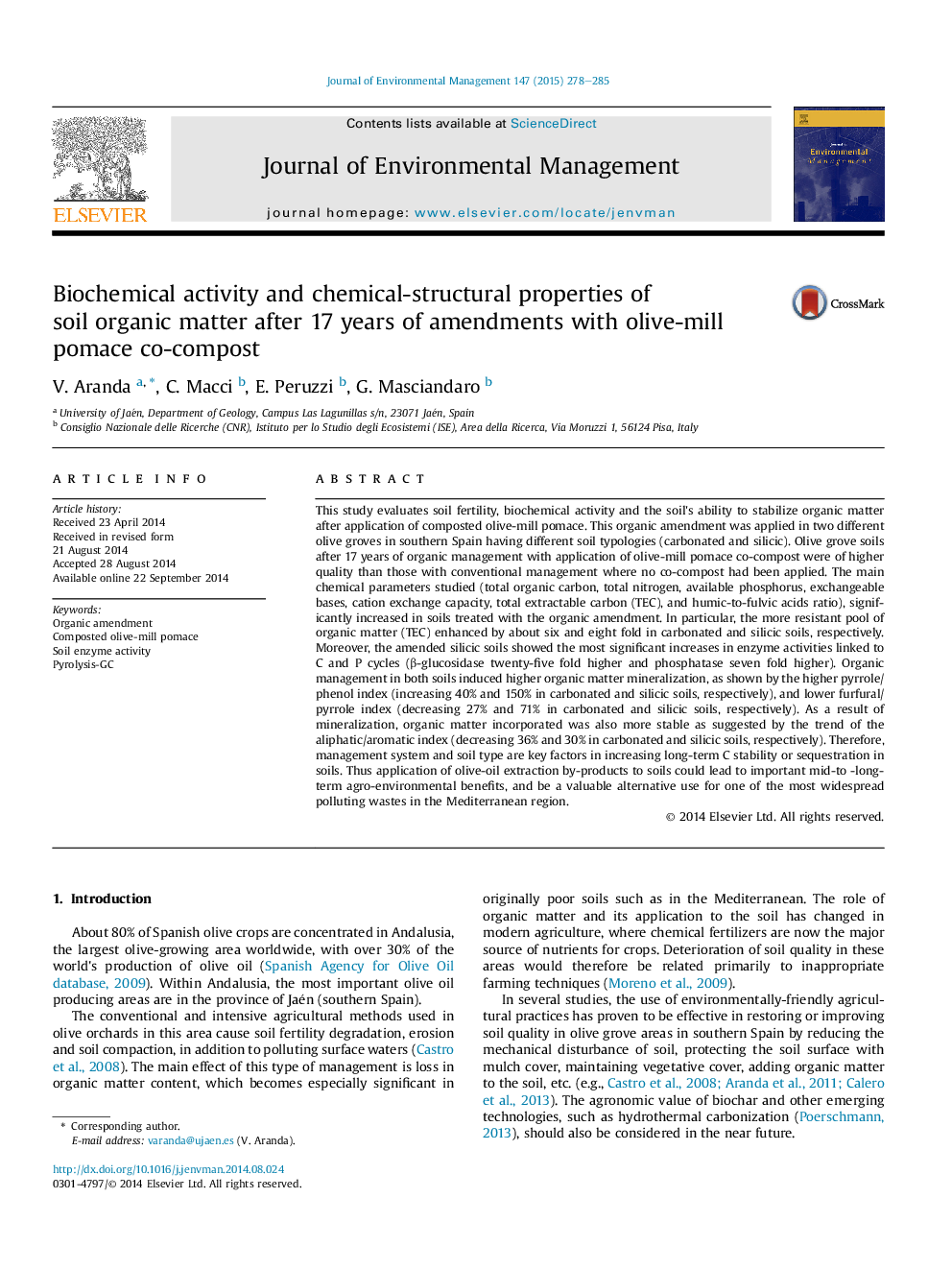| Article ID | Journal | Published Year | Pages | File Type |
|---|---|---|---|---|
| 1055670 | Journal of Environmental Management | 2015 | 8 Pages |
•Composted olive-mill pomace may be used as soil amendment for improving soil quality.•Biochemical and structural SOM properties were related to management and soil type.•The amended silicic soils showed the most significant increases in enzyme activities.•Organically managed soils showed higher stabilization of the OM incorporated.•Composted olive-mill pomace is a valuable alternative for recycling this waste.
This study evaluates soil fertility, biochemical activity and the soil's ability to stabilize organic matter after application of composted olive-mill pomace. This organic amendment was applied in two different olive groves in southern Spain having different soil typologies (carbonated and silicic). Olive grove soils after 17 years of organic management with application of olive-mill pomace co-compost were of higher quality than those with conventional management where no co-compost had been applied. The main chemical parameters studied (total organic carbon, total nitrogen, available phosphorus, exchangeable bases, cation exchange capacity, total extractable carbon (TEC), and humic-to-fulvic acids ratio), significantly increased in soils treated with the organic amendment. In particular, the more resistant pool of organic matter (TEC) enhanced by about six and eight fold in carbonated and silicic soils, respectively. Moreover, the amended silicic soils showed the most significant increases in enzyme activities linked to C and P cycles (β-glucosidase twenty-five fold higher and phosphatase seven fold higher). Organic management in both soils induced higher organic matter mineralization, as shown by the higher pyrrole/phenol index (increasing 40% and 150% in carbonated and silicic soils, respectively), and lower furfural/pyrrole index (decreasing 27% and 71% in carbonated and silicic soils, respectively). As a result of mineralization, organic matter incorporated was also more stable as suggested by the trend of the aliphatic/aromatic index (decreasing 36% and 30% in carbonated and silicic soils, respectively). Therefore, management system and soil type are key factors in increasing long-term C stability or sequestration in soils. Thus application of olive-oil extraction by-products to soils could lead to important mid-to -long-term agro-environmental benefits, and be a valuable alternative use for one of the most widespread polluting wastes in the Mediterranean region.
